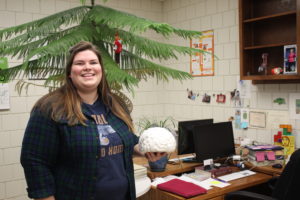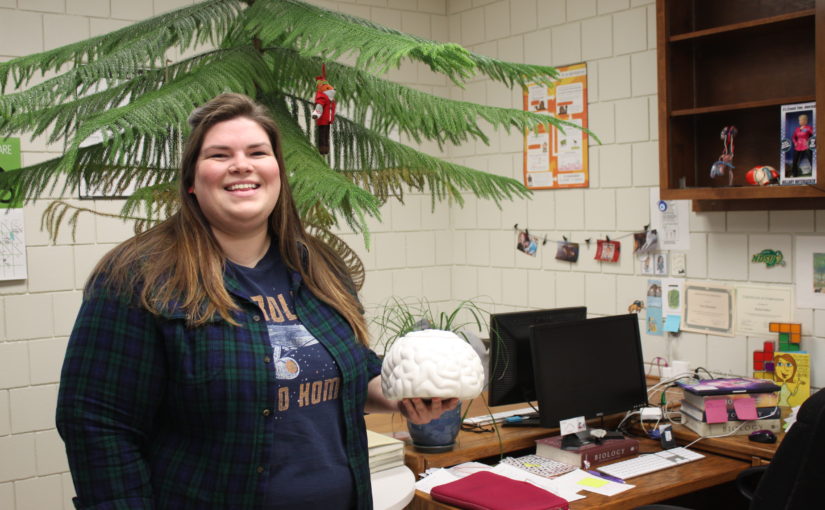Rachel Salter, a second year Ph.D. student in biological sciences and STEM education, won a grant from the National Science Foundation Graduate Research Fellowship Program, which funds graduate students who show promise of becoming successful scientists.
Past fellows include numerous Nobel laureates, and even Sergey Brin, the co-founder of Google.
“The NSF-GRFP grant is one of the most prestigious awards STEM graduate students can earn,” Enrico Sassi, the Director of the Graduate Center for Writers, said, “it is an honor when an NDSU student wins one.”

The award provides funding for three to five years and gives grad students more freedom to pursue their research.
“I like to teach, especially since it is the focus of my research, but it takes up a lot of time,” Salter said. “I spend around three hours a day prepping for the class I teach.
“So the grant frees up time since students don’t have to worry as much about other sources for finances — or for students who were originally funded through their adviser’s grant, this could offer them the opportunity to pursue their own research,” Salter noted.
Salter’s research is on evolution education and communication in the classrooms.
“I’m interested in making sure instructors and students have a way to really talk to each other, especially in these large lecture classes,” Salter said.
Salter noted students might often feel like their instructors don’t care about them.
“The fact of the matter is, most instructors really do care about their classes — but they are often really busy, and even excellent researchers maybe haven’t been taught the best ways to teach,” Salter said. “So I want to create better tools for instructors to use that they could drop into their courses to benefit their students.”
One of the consistent problems with STEM classes is the large class size, especially since the best learning and engagement usually happens when instructors can interact individually with students. “Rachel is working on ways to make individual feedback possible even in large classes, and her work will also help the growing area of online learning,” Sassi said.
Salter would like to continue as a researcher and instructor at the college level in the future.
“I don’t want anyone to take one of my classes and say ‘this was too hard; I can’t be a scientist,'” Salter said. “I want to challenge students, but I don’t want to create an intimidating environment. So my research is all about facilitating communication between instructors and students.”
While graduate students are only eligible to apply for the grant once, seniors going on to graduate programs in STEM fields are encouraged to apply as well, since they can apply again once they have graduate status.
Sassi encourages seniors who plan to pursue graduate research degrees to take UNIV 440/640: “Writing for Scholars, Fellows, and Researchers,” which can assist with the grant writing process.
